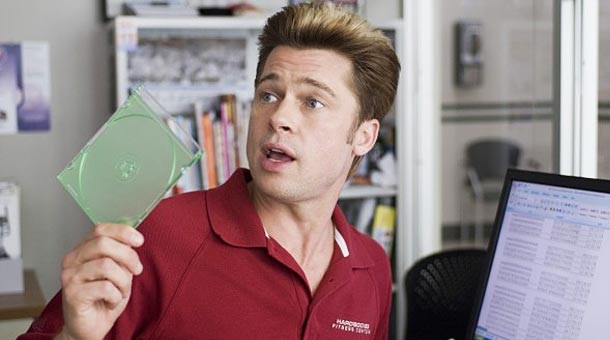
There are characters that you’ll come to love or hate, but on some level you’ll secretly empathize with each and every one of them.

There are characters that you’ll come to love or hate, but on some level you’ll secretly empathize with each and every one of them.
When you first watch this story of trickery and deceit, you may perceive it quite differently as you would following a second viewing. After seeing Burn After Reading for the first time in 2008, I was compelled to hate everything about it. I found it hard to enjoy the events that occurred, I was unhappy with the character arcs that Joel and Ethan chose and I was dissatisfied with the ending. Having recently watched it again, however, I was willing to retract my previous judgement and declare that I was quite taken with the quirky, deceitful scenarios that rolled out.
Burn After Reading is a story based upon the idea that when people want something badly enough, they can sometimes go to extreme measures in achieving it; and the Coen Brothers once again demonstrate different ridiculous outcomes to the everyday circumstances these characters endure.
Academy Award Winner, Frances McDormand (Fargo) – a Coen Brothers/Amy favourite, plays as Linda Litzke, a woman who is absolutely determined to undergo plastic surgery to reshape her body and uplift her life. The whole film is molded around Litzke’s unwavering focus on her desire to reinvent herself, and mishap after mishap ensues as her schemes become increasingly reckless (and as a result a lot more dangerous). Initially disheartened by her insurance company refusing to cover the surgery; Chad (Brad Pitt), discovers a disc containing what he believes to be “high quality information” that he presumes will help her money issues. What unfolds thereafter is a series of events that leads up to you finally thinking “so what did we just watch?” It is not a bad movie as a result of this, I enjoyed the fact it gave me time to reflect on what I had just sat through: a story full of real feelings, real emotions and a narrative that never leaves you wanting to drift off face first into your popcorn.

McDormand’s character portrayal is not the only one I wish to comment on, as Brad Pitt’s character Chad, was one of his most versatile performances to date. Playing an energetic yet comically naive personal trainer for a fitness centre, it gave Pitt a chance to step back from his alter ego Rusty Ryan/Tyler Durden persona. Chad’s simplicity gets him in a lot of trouble during the course of the film, but his optimism for life never falters.
Each scene leaves you thinking “what is actually happening” as the story continues to take us in many different directions. Subplots divide and multiply as the film unfolds, yet all are interwoven. You’re not necessarily confused with what the characters are up to, but more so why they’re perhaps building a reclining sex chair or chasing fitness instructors with an axe. There are characters that you’ll come to love or hate, but on some level you’ll secretly empathize with each and every one of them.
Joel and Ethan Coen have such a rich history in filming excellent and unforgettable movies, such as Raising Arizona (1987), Fargo (1996), The Big Lebowski (1998) and more recently No Country for Old Men (2007) and True Grit (2010), that anything they make is classed as unique and creative; and Burn After Reading ticks both those boxes. Because of how interesting the storylines for each character are and how entertainingly painful they are to watch, after every scene you’re constantly questioning yourself as to whether or not you love or hate the film.
The quote that the movie went for, “Intelligence is Relative”, fits perfectly to the references to the CIA, where “Intelligence” is paramount, every character, including those government officials, are clueless as to what is happening within their own lives let alone anyone else’s. It’s a great quote to summarize the plot and the characters alike – that there can be no stupid questions, only stupid answers; cue Burn after Reading.